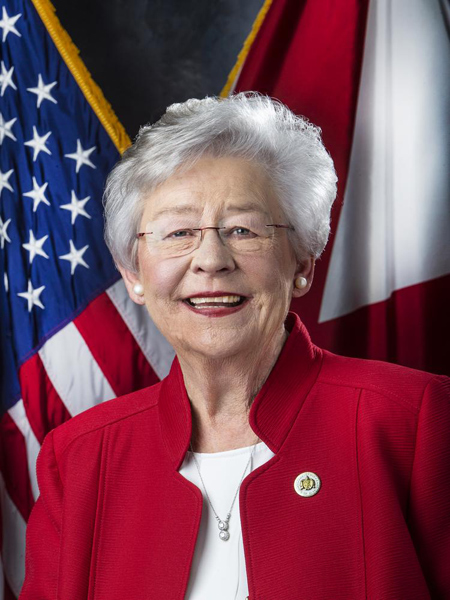Penalty of $500 fine, jail for failure to comply
By Michelle Key
Publisher
Gov. Kay Ivey announced that she is implementing a mandatory mask wearing policy during a live press conference Wednesday morning. Ivey announced that there were 2,141 new cases of COVID-19 overnight and that there has been a 50% increase in than new cases during the last 14 days. The mask mandate will go into effect at 5 p.m. on July 16 and will be in effect until July 31. This is in addition to the ‘Safer at Home’ order that is currently in place. No other changes in the Safer at Home order at this time.
However, Ivey reminded everyone that she has said that she reserves the right to come back and reverse course. “This mask mandate is the first step of doing just that. Clearly there are some other, more restrictive actions that we could take; such as closing things back down, but I don’t want to go there unless there are absolutely no other options available,” Ivey said. “That is why I am trusting the people of Alabama to do the right thing and wear a mask. With everyone’s cooperation we can slow down he spread of this virus.”
Ivey did say that violating the order carries a $500 fine and or jail time, but emphasized that fining people or putting them in jail is not the goal.
“We are certainly not asking our sheriff’s and police officers to go out and look for people not wearing a mask and arrest them but we are asking everyone to do a better job of practicing social distancing, personal hygiene and now wearing a face mask.”
State Health Officer Dr. Scott Harris stated that only about 12% of ICU beds across the state are available with nearly 30 hospitals that have very limited or no ICU capacity at all.
“Alabama is not headed in the right direction. I believe this mask ordinance is the right thing to do because it will prevent disease transmission,” Harris said. “To echo what the Governor said, ‘We all have a personal responsibility.’”
“No one is interested in arresting people who don’t have masks… but this is something that will prevent disease from occurring in our state and it is the right thing to do,” Harris added.
“The goal is to demonstrate the importance, the urgency, of engaging this important tool that we all have access to, that’s a face covering,” Ivey said. “Y’all it is just the smart thing to do.”
There are five categories of exceptions which are listed as follows:
Practical necessity
• any person six years of age or younger
• any person with a medical condition or disability that prevents him or her from wearing a facial covering
• any person while consuming food or drink, or seated at a restaurant to ear or drink
• any person who is obtaining a service (for example, a medical or dental procedure) that requires the removal of the facial covering in order to perform the service
• any person who is required to remove the facial coverage to confirm his or her identity, such as for security or screening purposes.
Exercise
The facial-covering requirement does not apply to:
• any person who is actively engaged in exercise in a gym or other athletic facility if he or she maintains six feet of separation from persons of another household
• any person who is directly participating in athletic activities in compliance with paragraph 11 of the governor’s order
• any person who is in a swimming pool, lake, water attraction or similar body of water, though wearing a face covering or social distancing is strongly encouraged if safe and practicable.
Effective communication
The facial-covering requirement does not apply to:
• any person who is seeking to communicate with another person where the ability to see the person’s mouth is essential for communication (such as when the other person has a hearing impairment) or
• any person speaking for broadcast or to an audience if the person maintains six feet of separation from persons from another household.
Constitutionally protected activity
The facial-covering requirement does not apply to:
• any person who is voting, though wearing a face covering is strongly encouraged or
• any person who cannot wear a facial covering because he or she is actively providing or obtaining access to religious worship, though wearing a face covering is strongly encouraged.
Essential job functions
The facial-covering requirement does not apply to:
• any first responder (including law enforcement officers, firefighters or emergency medical personnel) if necessary to perform a public-safety function or
• any person performing a job function if wearing a face covering is inconsistent with industry safety standards or a business’s established safety protocols.
The full text of the amended ’Safer at Home’ order can be read at governor.alabama.gov/assets/2020/07/Safer-at-Home-Order-Mask-Amendment-7.15.2020-FINAL.pdf.

